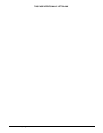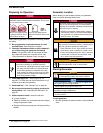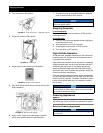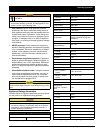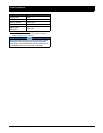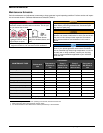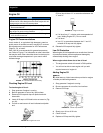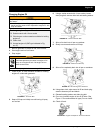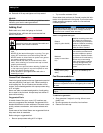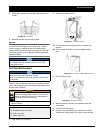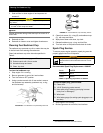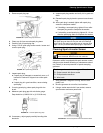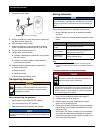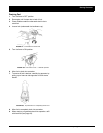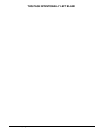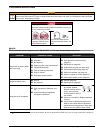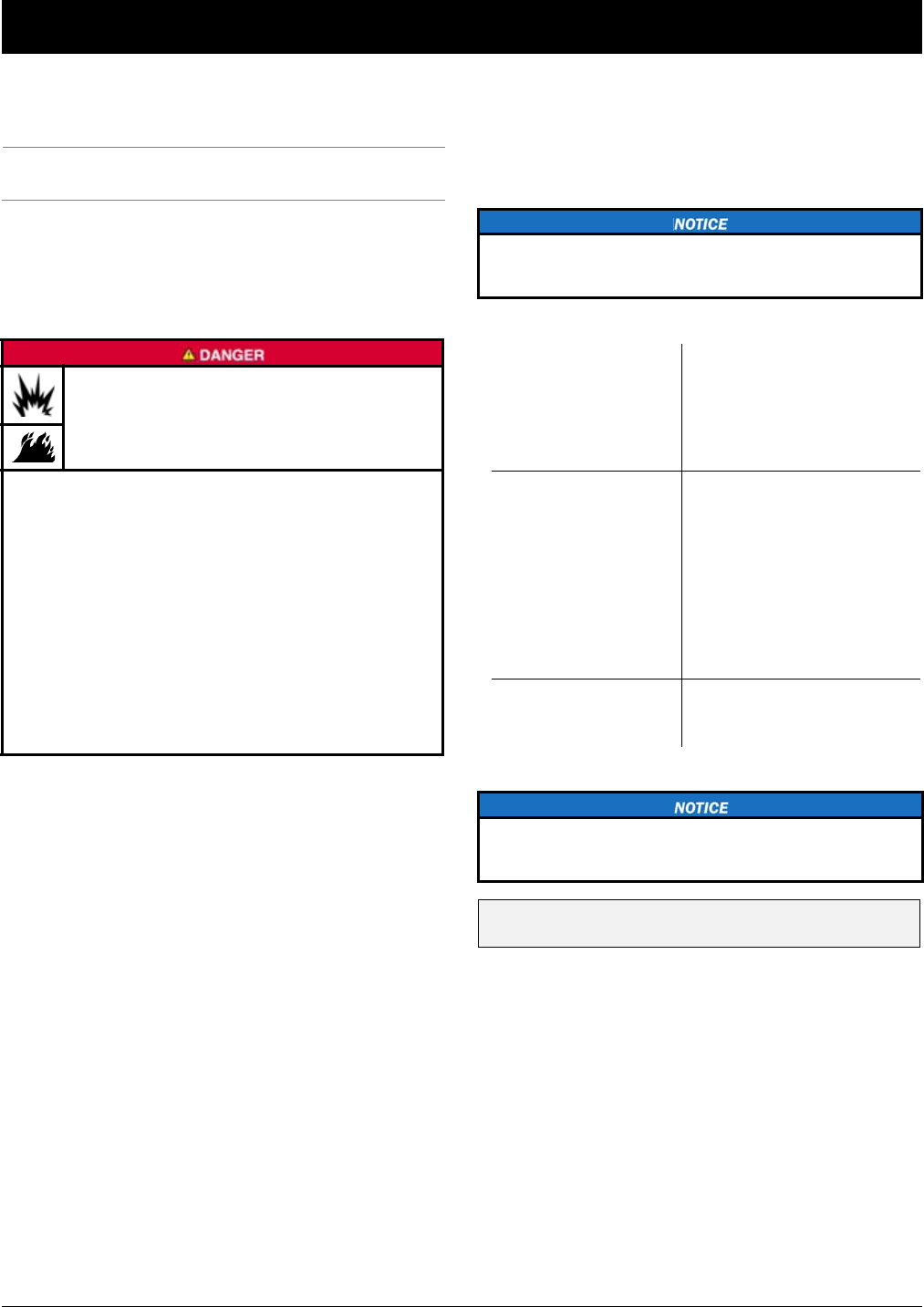
Adding Fuel
22 www.honeywellgenerators.com HW4000 Portable Generator Owner’s Manual
14. Reinstall oil fill cap and tighten until fully seated.
NOTE:
i
Dispose of used motor oil according to guidelines estab-
lished by your local or state government.
Adding Fuel
Before each use, check fuel gauge on fuel tank.
If fuel level is low, refill tank with recommended fuel.
NEVER OVERFILL.
General Fuel Information
Check fuel gauge located on the top of generator near fuel
tank and refill tank if fuel level is low. Refuel carefully to
avoid spilling fuel. Do not fill above the shoulder of fuel
strainer. Use unleaded gasoline with a pump octane rating
of 87 or higher.
Never use stale or contaminated gasoline. Avoid getting
dirt or water in the fuel tank. Always keep fuel strainer in
place while refueling.
Oxygenated Fuels
At certain times of the year, some U.S. locations may
have only oxygenated fuel available. Oxygenated fuel is
blended with alcohol or ether additives to increase octane
quality, enhance combustion, and reduce exhaust emis-
sions.
Some areas of the United States use oxygenated fuels to
help meet clean air standards.
Before using an oxygenated fuel:
• Be sure pump octane rating is 87 or higher.
• Try to confirm contents of fuel.
Some states (and provinces in Canada) require this infor-
mation to be posted on the fuel pump. If you notice unde-
sirable operating symptoms, switch to a conventional
unleaded gasoline.
Fuel Recommendations
To add fuel to generator:
1.
Stop generator if engine is running. Allow to com-
pletely cool.
2. Be sure generator is set on flat, level surface.
3. Remove fuel tank cap.
Fuel and fuel vapors are extremely flammable and
explosive under certain conditions.
• Refuel generator only outdoors, in a well-ventilated
area.
• NEVER fill fuel tank while engine is running. Turn gen-
erator OFF and allow to cool before filling with fuel.
• NEVER smoke or allow flames or sparks near genera-
tor or where gasoline is stored.
• NEVER overfill fuel tank (no fuel should be in filler
neck). After refueling, be sure fuel tank cap is closed
properly and securely.
• Be careful not to spill fuel when refueling. Spilled fuel
or fuel vapor may ignite. If any fuel is spilled, be sure
area is dry before starting engine.
• Avoid repeated or prolonged contact with skin or
breathing of vapor.
Oxygenated fuels can damage paint and plastic. Be careful
not to spill fuel when filling fuel tank. Damage caused by
spilled fuel is not covered under warranty.
TABLE 3. Oxygenated Fuel Types
Ethanol
(ethyl or grain alcohol)
Gasoline containing more than
10% ethanol by volume may
cause starting or performance
problems. Gasoline containing
ethanol may be marketed
under the name "Gasohol".
Methanol
(methyl or wood alco-
hol)
Gasoline containing methanol
must contain co-solvents and
corrosion inhibitors to protect
fuel system. Gasoline contain-
ing more than 5% methanol by
volume may cause starting
and/or performance problems
and may damage metal, rub-
ber and plastic parts of fuel
system.
MTBE
(methyl tertiary butyl
ether)
You can use gasoline contain-
ing up to 15% MTBE by vol-
ume.
To avoid damage to engine, never use stale or contaminated
gasoline or oil/gasoline mixture. Avoid getting dirt or water in
fuel tank.
Use fresh gasoline with a pump octane rating of 87 or
higher.



